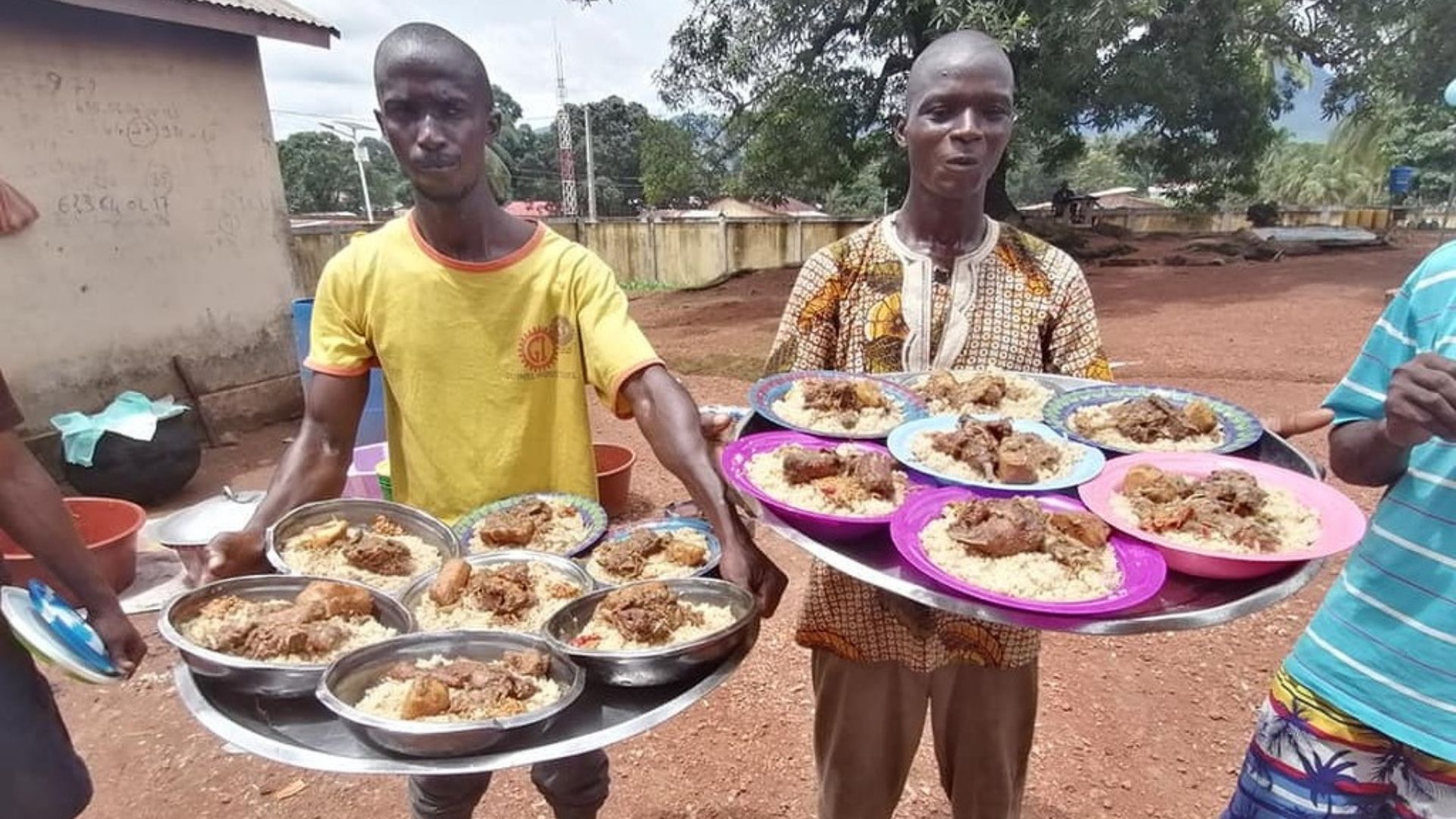Guinea Conakry, ‘Dream Programme’ volunteers among prisoners in Dubréka
The women and men of the Community of Sant’Egidio bring food and music to prisoners living in desperate conditions. The programme aims to cure and prevent Aids and curb malnutrition.
An article by Natasha Caragnano, La Repubblica, Mondo Solidale
The days of Eid al-Adha, the “feast of sacrifice”, one of the most important festivals celebrated by Muslims to demonstrate their loyalty and devotion to God, have passed. In Guinea Conakry – a former French colony in West Africa – a group of volunteers from the DREAM Programme of the Community of Sant’Egidio in Barcelona brought food and music to the prisons of Dubréka, 50 kilometres from the country’s capital, Conakrry, where prisoners live in precarious conditions. The DREAM health programme in Guinea has been active since 2006 and aims to treat and prevent AIDS, fight malnutrition and guarantee the right to health. “The party was an opportunity to bring aid to people who would otherwise be forgotten,” says Raquel Sancho, a primary school teacher in Barcelona who has been a member of the health care project since 2004.
Food aid, soaps, toothpaste. In Dubréka’s cells, the light is dim, there is no air and food is scarce. The 170 inmates received only one plate of plain rice for the whole day. “When you live in these conditions, a visit from someone reminds you that you exist, that you are a person”, Raquel is on her way back to Barcelona and tells how the sound of drums and a plate of rice with chicken and hot sauce has given these people new life. The food aid, soaps, toothpaste and medicines brought by the activists improve the living conditions of the prisoners who crowd the very small cells, where diseases spread quickly.
Prisoners in jail even after serving their sentences. Among them, it is not difficult to find someone who has already served their sentence but is still waiting for their sentence because of a judicial system that does not work: “This year we have released three inmates after going through the case register,” says Raquel. The work in the prisons engages the activists of the DREAM programme every week, becoming the only possible contact between the prisoners and their loved ones. “The prison pharmacies are empty and without someone to get you medicine, it is not easy to survive. We try to help them, to inform their families about their health conditions and what they need,” she explains.
The health system is not accessible to everyone. The private health system, made even more fragile by the Covid-19 health emergency, is not accessible to all. The four centres of the Community of Sant’Egidio assist more than 4,000 patients free of charge, reaching the extreme peripheries, such as the prison of Dubréka. And when Raquel and the other volunteers are not in Guinea Conakry, it is the local activists who take care of the prisoners, the clinic patients and the most fragile families. “Training is a fundamental part of our project. Once the AIDS treatment has begun, it happens that the patients decide to study to become nurses or to help us in the centres,” explains programme manager Cristina Cannelli. Even if the incidence of the disease in the country is not very high, about 1.7 per cent, it doesn’t mean that people don’t die and that we don’t have to fight the stigma that surrounds those who are ill. For this reason, the testimony of people living with AIDS is essential. “In the last few years, we have managed to reach about three hundred children born without the virus to HIV-positive mothers. This is a great success for us,” Cannelli concludes.
